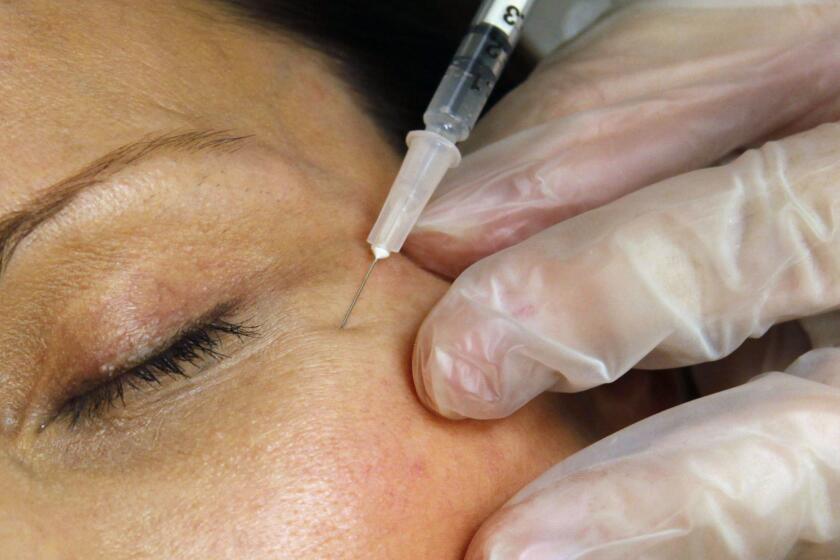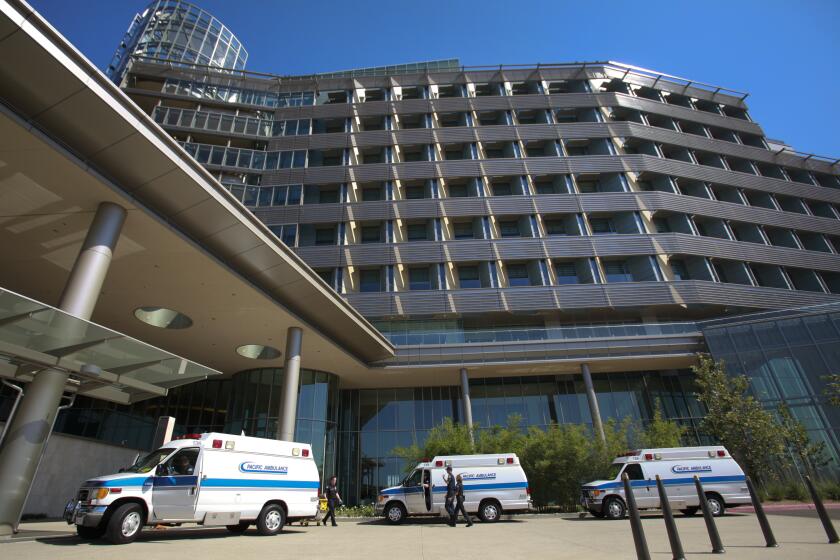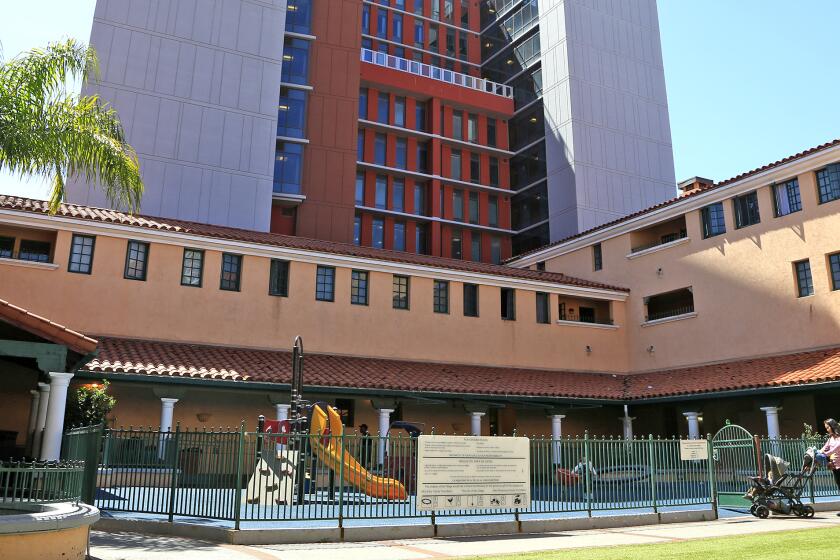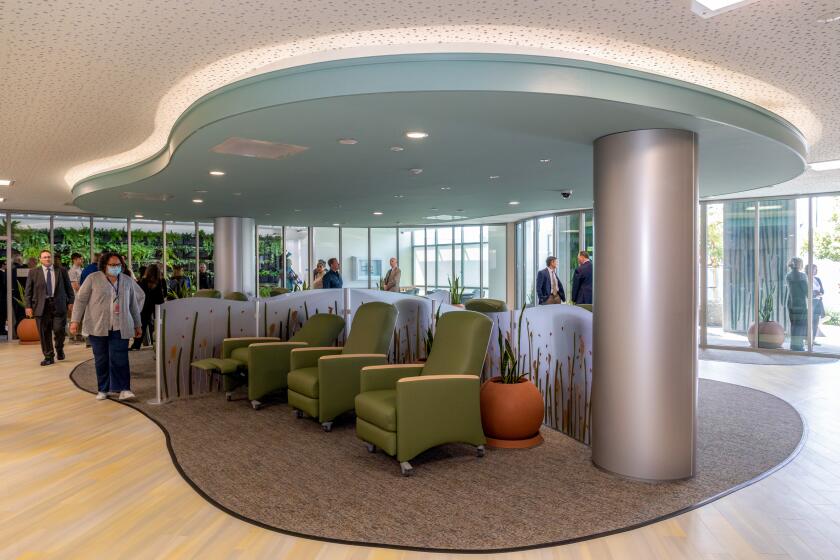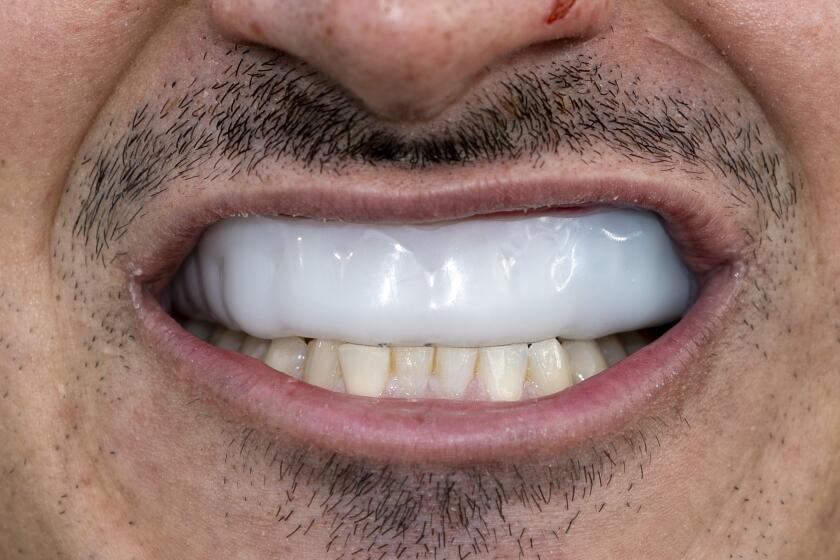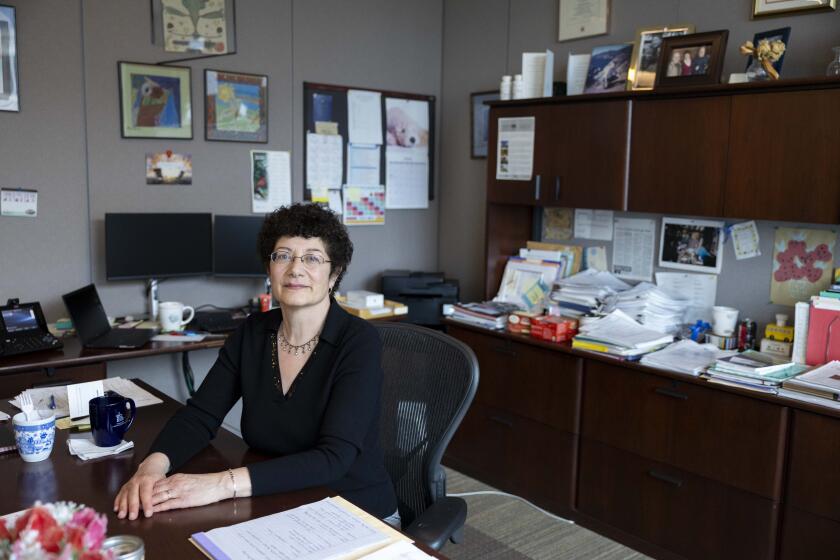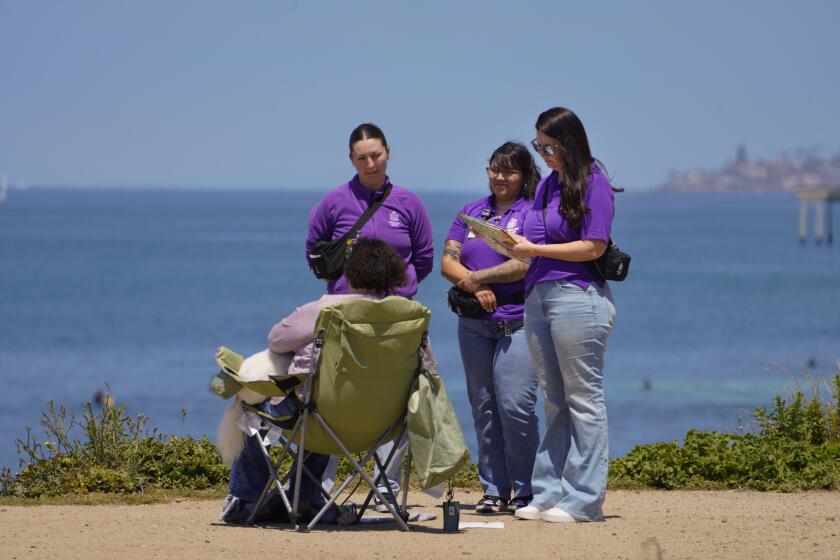Faced with Omicron, county ponders increased testing, early treatment
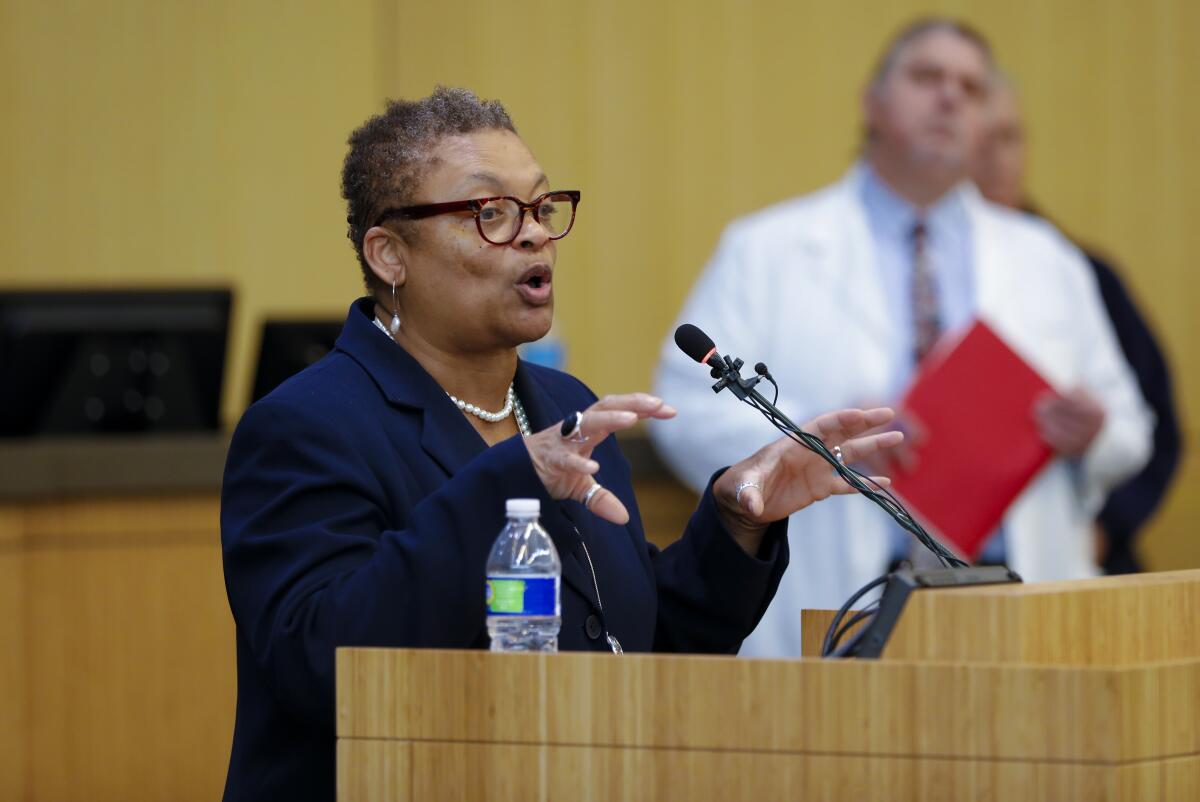
County supervisors had their first monthly COVID-19 report since the Omicron variant became a global concern on Tuesday, but did not pepper public health leaders with questions about how local coronavirus policies would change if cases and hospitalizations surge significantly this winter.
After hearing from nearly 40 public speakers, most of whom denounced one aspect of the pandemic response or another, board members asked for more pragmatic information around testing, vaccination efforts and monoclonal antibody treatments.
During her presentation, Dr. Wilma Wooten, director of the county’s public health department, took a moment to focus on K-12 schools, flashing a graphic that showed that county case investigators have identified hundreds of students, and dozens of adults, who were present on campuses while they were in their communicable period that starts 48 hours before symptoms appear.
The message to parents was clear: Just because kids are kept home from school, and sent home if they come in with COVID symptoms, does not mean that schools can be completely protected from the virus.
“Since COVID-19 is infectious before the onset of symptoms, it will be nearly impossible to eliminate all risk of exposure at schools,” Wooten said. “The best defense is getting vaccinated to limit the risk of spread and of severe disease.”
As of Sunday, Dec. 5, Wooten said that 19.4 percent of local children ages 5 to 11 — who were only just approved for vaccination in early November — have now received their first shots. That’s up from 16.8 percent, the figure listed in the county’s weekly COVID report last Wednesday.
Monoclonal antibody treatments, which can help prevent severe disease if administered to those with mild coronavirus infections shortly after they test positive, were also part of the board’s discussion Tuesday.
Supervisor Jim Desmond asked county staffers to return at a later date with a plan for how the public could be made more aware that monoclonals are a valuable option for those at high risk of severe COVID complications.
“We need to make a stronger effort to let people know that it’s there,” Desmond said. “That would be another avenue we could pursue to keep people out of the hospitals.”
Dr. Eric McDonald, the county’s medical director, noted that the county, which operates four different monoclonal centers across the region, made a significant media push when those locations were opened. He added that all local health systems are able to offer and administer monoclonals to patients without the county’s involvement.
Recently, though, McDonald said that the amount of demand for monoclonals has exceeded immediate supply.
“Last week was the first week that we could not fill all of the requests,” McDonald said, adding that the county’s contact tracers offer the treatments to everyone they interview if they qualify.
Desmond also pushed forward on finding a way to help unvaccinated residents who have previously had coronavirus infections quantify their natural immunity. As vaccination mandates have arrived, many people who have refused to get their shots have said they believe that their immunity should count for something, especially since some studies have found that it may be more robust than immunity induced by vaccination.
Antibody tests, the supervisor noted, could show the amount of protection that a person has after natural infection, suggesting a way for those who have remained unvaccinated to ignore mandates.
“You know, they might be able to keep their jobs if they could show proof of antibodies,” Desmond said.
The problem, McDonald noted, is that science has not yet determined for sure just how long natural antibodies last. Nor has it determined exactly what one level or another level of coronavirus antibodies detected in a previously infected person’s blood might mean in terms of their likelihood of future infection.
“The bottom line for interpreting what (antibody tests) mean over the long haul is still a matter of debate, even among physicians,” McDonald said. “Giving that information to patients may be useful in the extremely short term, but not in the long run.”
A more immediate gain, he added, might be found in increasing the amount of rapid coronavirus testing available to the public. Rapid testing, especially testing that can be conducted at home, has been seen as a way to help people learn whether they’re infected more quickly, potentially influencing subsequent decision making about contact with others.
The board voted to receive a report on all options for enhanced testing and also for a report from experts on the possibilities around antibody tests.
The county announced 712 new coronavirus cases Tuesday, down significantly from recent reports which spiked above 1,000 per day starting a week after Thanksgiving.
Get Essential San Diego, weekday mornings
Get top headlines from the Union-Tribune in your inbox weekday mornings, including top news, local, sports, business, entertainment and opinion.
You may occasionally receive promotional content from the San Diego Union-Tribune.

